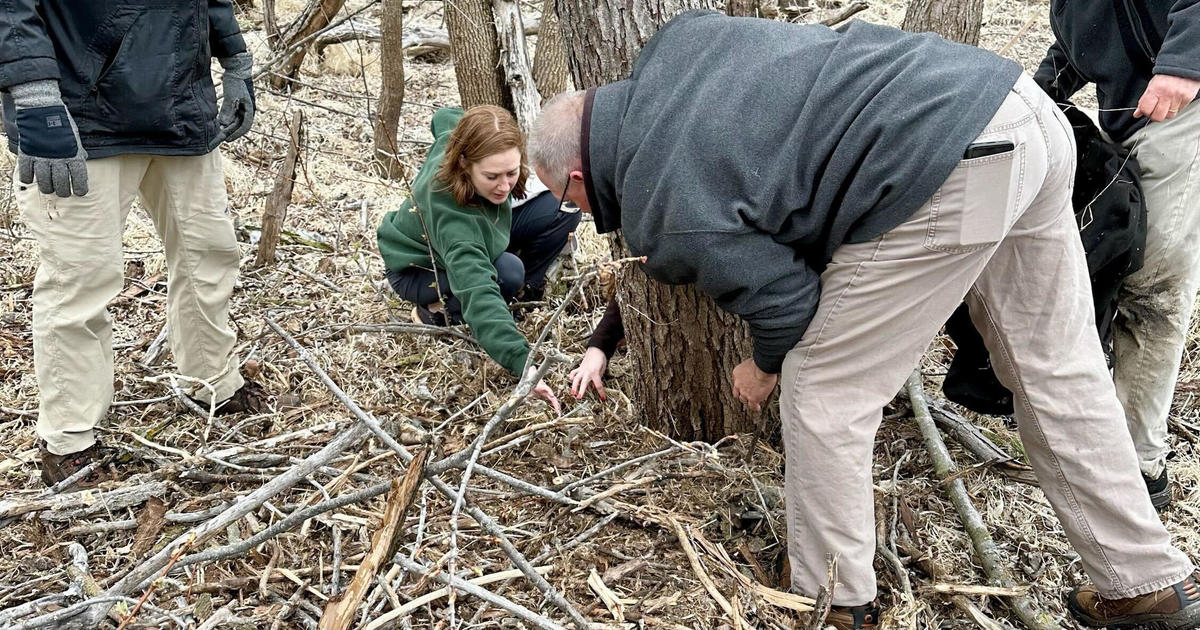Nesting Loons Plagued By Black Fly Onslaught
ST. PAUL, Minn. (WCCO) -- The peaceful call of loons in northern Minnesota is coming under attack by the pestering buzz of biting black flies.
"It must be hard for them to even see, let alone even breathe," said Lori Naumann, a non-game specialist with the Department of Natural Resources.
She says the problem with black flies (AKA gnats) affecting nesting loons has been building for the past several years.
She has photographs of a nesting loon covered with flies as it incubates its eggs. There is also a later photo taken of the same nest, when it was eventually abandoned.
The DNR is getting reports of loons abandoning nests, forced off by an onslaught of black flies.
"[The loons] have to rotate the eggs and sit on them to keep them constant temperatures in order for those eggs to be incubated properly," Naumann said. "And that doesn't happen when they have to leave the nests to get rid of the flies."
A gentle breeze kept biting gnats at bay for anglers along the Mississippi River near the Coon Rapids dam. That's where the Metropolitan Mosquito Control District (MMCD) maintains a black fly monitoring station.
"Black flies come from running water," said the MMCD's Mike McLean.
He says black flies lay their eggs in moving water, and with all the rainfall this spring, more water means more eggs hatch.
"A lot of rivers and streams are swelled up, and water levels are staying high," McLean added. "Black flies really like that."
Metro rivers and streams are treated with bacteria known as BTI, which is used to kill black fly larvae.
Treatments will bring relief to city folks, but it will do little good to help the loons up north.
"If you've ever been bit up by a gnat," McLean said, "it's an experience you don't forget."



